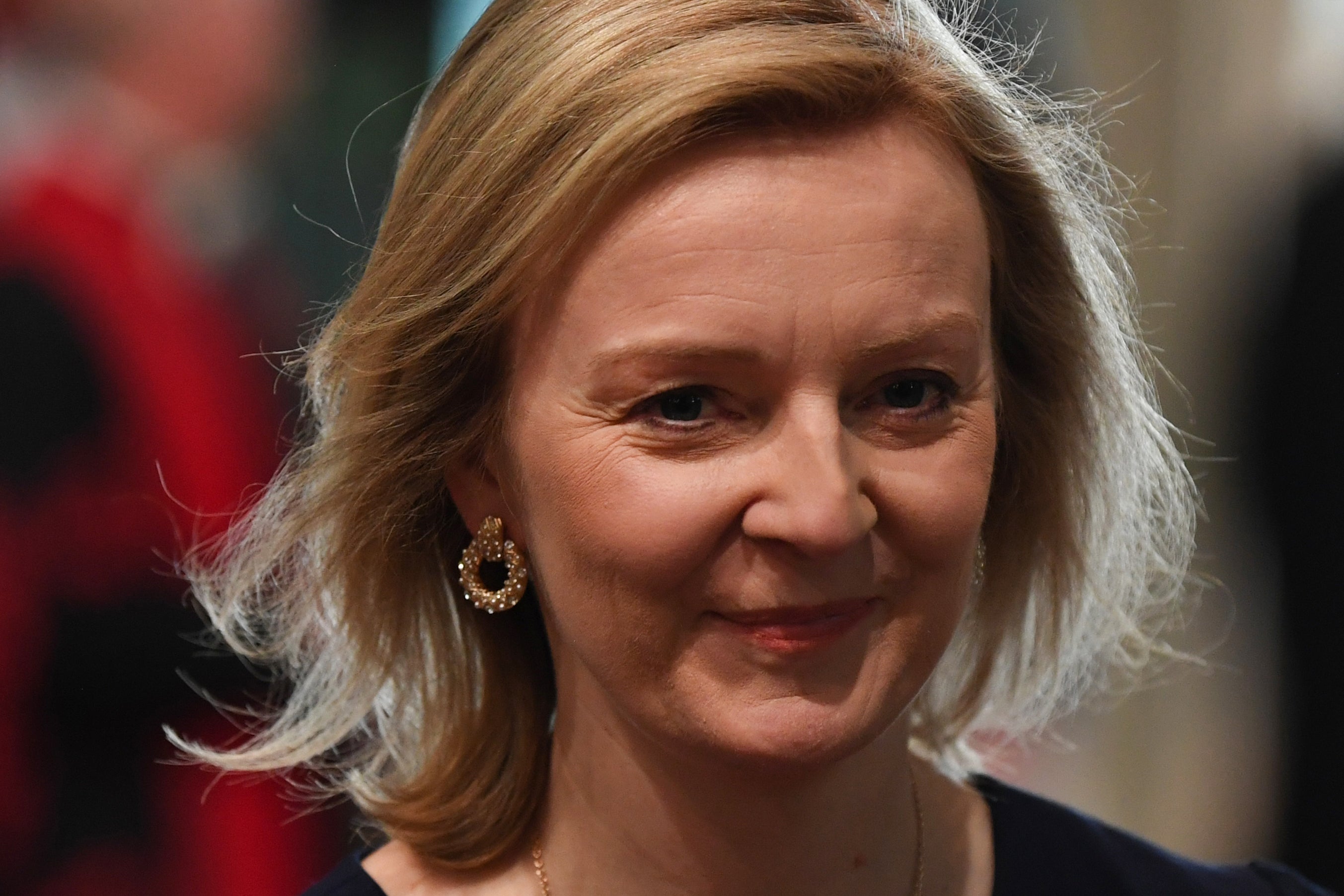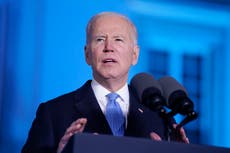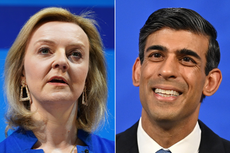Russian sanctions could be lifted after invading forces withdrawn, Truss says
Foreign secretary says ceasefire, withdrawal and commitment to ‘no further aggression’ required

Sanctions against Russian oligarchs, banks and businesses could be lifted if Vladimir Putin ends his invasion of Ukraine and commits to “no further aggression”, Liz Truss has said.
The foreign secretary said in an interview published on Sunday that the threat of “snapback sanctions” would be retained if the Russian president did attack again.
Ms Truss told The Sunday Telegraph that a “negotiations unit” had been established in the Foreign Office to aid possible peace talks.
With the Kremlin’s troops struggling, her comments will be seen as a possible incentive for Mr Putin to cut his losses and broker a deal with Ukraine.
Moscow has given indications after a month of war that it might scale back its ambitions to fight for control of the Donbas region in the east of Ukraine.
But Ukrainian president Volodymyr Zelensky warned he would not give up territory in peace talks as he noted that his troops have delivered “powerful blows” to invading forces.
Boris Johnson said that western allies are looking to “steadily ratchet up” the sanctions that have sought to punish Mr Putin and those who prop up his regime.
Ms Truss said: “Those sanctions should only come off with a full ceasefire and withdrawal, but also commitments that there will be no further aggression.
“And also, there’s the opportunity to have snapback sanctions if there is further aggression in future. That is a real lever that I think can be used.”
Her remarks fit with those of her US counterpart Antony Blinken, who has said the travel bans and asset freezes are “not designed to be permanent”.
The secretary of state said the sanctions could “go away” in the event of an “in effect, irreversible” withdrawal of Russian troops.
Fellow cabinet minister Nadhim Zahawi backed foreign secretary Liz Truss’s position that sanctions cannot be lifted from Russia until there is a full withdrawal of troops from Ukraine.
He told Sky’s Sophy Ridge on Sunday programme: “It has to be ... Absolutely right, I think the Russian illegal invasion has to end and the Russian army has to leave the Ukraine, and it’s up to the Ukrainian people, they must be very much the ones who decide what that peace looks like.”
Asked if Moscow was changing strategy to focus on the Donbas region, Mr Zahawi said that the Russian military is having “real problems” on the ground as the Ukrainians have “fought like lions”.
Mr Zahawi also said regime change in Russia would be “up to the Russian people”, following the furore over US president Joe Biden’s apparent call for Putin’s removal.
The White House has scrambled to row back on the US president’s remarks, insisting that Biden was not calling for regime change when he said Putin “cannot remain in power”.
Asked if the UK government agreed with Joe Biden that Vladimir Putin “cannot remain in power”, Mr Zahwi said: “I think that’s up to the Russian people.”
Pressed again if Mr Biden was wrong to say what he did, Mr Zahawi said: “No, what I’m saying to you is the White House has been very clear on this … I think both the United States and the United Kingdom agree that it’s up to the Russian people to decide who should be governing them.”
Meanwhile, former head of the civil service Lord Sedwill said that Britain’s defence spending should be increased, and the overseas aid budget should return to its pre-cut level.
The peer, cabinet secretary and national security adviser under Boris Johnson, made the call on Sunday as allies reconsider spending levels in response to the Russian threat.
Lord Sedwill suggested national security spending should raise to 4 per cent of GDP to include defence spending increasing up to 2.75 per cent from 2 per cent where it stands now.
He also called for aid spending to be brought back to 0.7 per cent of gross national income after the PM slashed it to 0.5 per cent during the Covid pandemic.



Bookmark popover
Removed from bookmarks